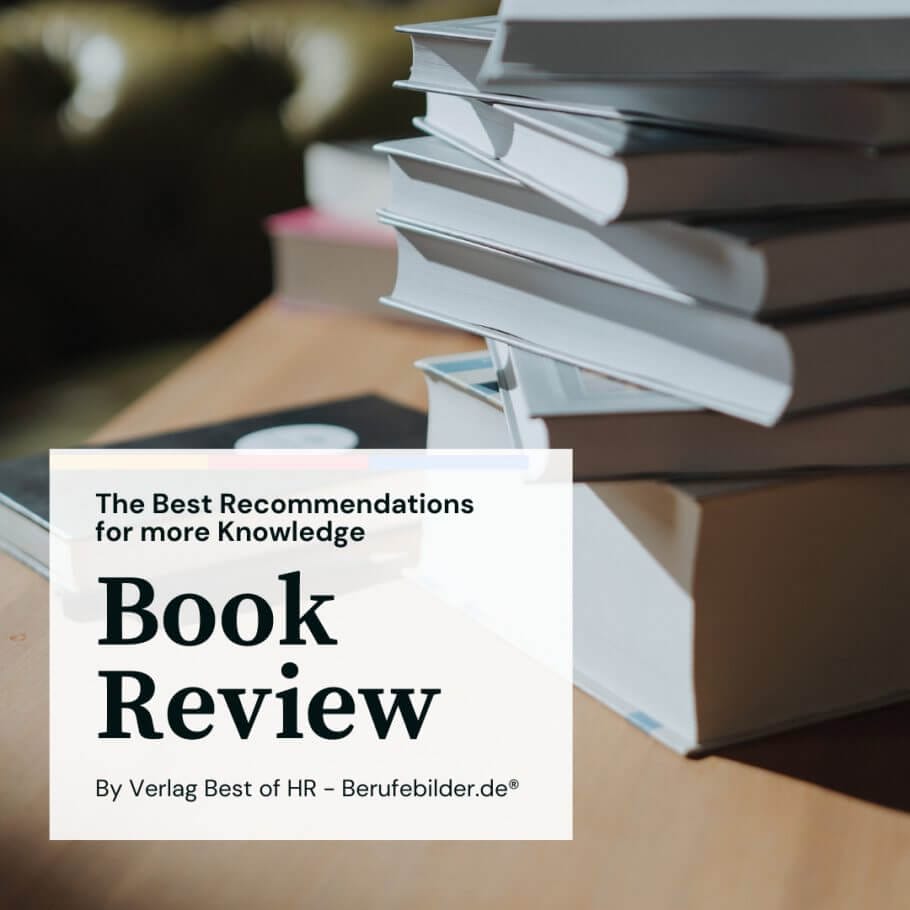Your shopping cart is currently empty!
For their successful, good life Information you really need: Government-funded publisher, awarded the Global Business Award as Publisher of the Year: Books, Magazine, eCourses, data-driven AI-Services. Print and online publications as well as the latest technology go hand in hand - with over 20 years of experience, partners like this Federal Ministry of Education, customers like Samsung, DELL, Telekom or universities. behind it Simone Janson, German Top 10 blogger, referenced in ARD, FAZ, ZEIT, WELT, Wikipedia.
Disclosure & Copyright: Images created as part of a free collaboration with Shutterstock.
Digitization & humanity: do we all have to become AI understanders now?
By Anne M. Schuller (More) • Last updated on October 20.02.2023, XNUMX • First published on 28.09.2020/XNUMX/XNUMX • So far 6376 readers, 3022 social media shares Likes & Reviews (5 / 5) • Read & write comments
Corona has become an innovation accelerator in terms of digitization. Human and artificial intelligences will now work more and more closely together. Only those who welcome new technologies and learn to collaborate with them will be ahead in the future.

- Human vs. Artificial intelligence: We are superior to AI in many ways
- What human intelligence has to offer
- Fluid intelligence: learning is still possible from 50
- Not a child's scheme: Why AI scares us
- What artificial intelligences have to offer
- How AI is changing work and learning
- Digitization allows us to learn faster and better
Human vs. Artificial intelligence: We are superior to AI in many ways
We People score points with a zillion things that are artificial Intelligence (KI) not yet can: with Humour, with empathy, with instincts, impulsiveness, spirituality, with the play of the senses, understanding the context, sensitivity, talent for improvisation, negotiation skills and common sense. And especially with that Lust on the social, what anthropologist Lionel Tiger calls "sociapleasure."
Those who are proficient in such areas and who also develop further in terms of technology are ahead in the digital age. Industrialization revolutionized body work, digitization is now turning brain work inside out. Above all, artificial intelligence takes care of the stupid work for us, so that we can improve our quality Tasks and can turn to smarter job descriptions.
What human intelligence has to offer
Above all, these have to do with innovating, adapting, combining, experimenting, coordinating, collaborating, making things more flexible, individualizing and emotionalizing. Such skills require adaptability and, most importantly, sensitivity to both people and the newest Technology.
Human intelligence (MI) can score with an enormous wealth of variants. Among others, there is the logical, linguistic, musical, spatial, somatic and emotional intelligence. To keep us fit for the Future To do this, we now have to quickly develop two new intelligences:
- the adaptive intelligence, which can adapt quickly and flexibly to the constantly new, unstoppable circumstances that are beating down on us, and
- the digital intelligence that permeates technology so far that it can distinguish the real from the wrong and the good from the bad.
Fluid intelligence: learning is still possible from 50
Can that be learned? Yes clear. You don't learn anything after 50? Bah! Our Brain is a lifelong construction site, science calls it neuroplasticity. Sufficient repetition develops automatisms that slip from the conscious into the subconscious, the so-called autopilot. This makes processes more routine, more agile and more effective.
The distinction between fluid and crystalline intelligence, which goes back to the personality psychologist Raymond Bernard Cattell, is also significant. Fluid intelligence encompasses skills such as a quick grasp, agile action and the creation of original solutions to problems. The fluid intelligence tends to increase with the Age a little off.
Crystalline intelligence, on the other hand, increases with age. To her belong a wide Background, intuition nurtured by experience and an eye for connections. fluids and crystalline intelligences become im Companys second hand. They need to be linked and work together.
Not a child's scheme: Why AI scares us
In Western cultures, thinking machines and robots are mostly seen as a threat that may one day destroy humanity - a belief to which the American film industry is not entirely innocent. In Asian cultures, on the other hand, robots are seen as a good thing. That's why they look so cute there. In humanoid form, they are much smaller than us, so there aren't any around us Anxiety close. And their faces are childish. This makes them acceptable and easier to access - a circumstance that the Far East Economy boom.
Western robots, on the other hand, mostly look like adults. We confront them and transfer our fear of them to any kind of AI. But instead of scaremongering and defensiveness, we should do better - without naivety and with an alert look at the risks – deal with the development of opportunities. And instead of lamenting about the decline in jobs, we should prepare ourselves for the jobs of the future. Man-machine cooperation is an unavoidable path.
What artificial intelligences have to offer
AI can do thousands of things in business Everyday life are valuable in order to increase the qualitative work of the employees, such as this: optimize processes, automate interactions, algorithmize probabilities, make predictions. People, on the other hand, are in demand precisely when context-related, fresh approaches are needed that cannot be "calculated" even with a wealth of data. ideas with Character in no time.
On the other hand, when it comes to efficiency, speed, large quantities, mountains of information, low Costs, pure routines and/or coping with repetitive, strenuous, dirty, unhealthy and dangerous work, artificial intelligence comes out on top. She learns incredibly quickly because she can access huge amounts of data and processes and networks them in fractions of a second. At most, it takes hours where people need weeks, months, years.
How AI is changing work and learning
Jobs are not becoming fewer, but different, namely of higher quality and therefore also more demanding. And they are constantly changing. This in turn means: So that the employees can face the challenges of the future Working world Knowing how to keep up are lifelong Things to Learn, high flexibility and constant willingness to change are a must. The usual standard training programs, through which pretty much everyone is traditionally smuggled through, whether they need it or not, are obsolete.
So stop learning content that you don't need. This is boring and creates indifference. No more prescribed training and unit programs. Sowas brings little benefit and devours a plethora Money. In the future, employee development must be tailored precisely and "just in time" to the individual situation. It is done in chunks and interactively, mostly with the help of Online-Modules that can be called up from anywhere.
Digitization allows us to learn faster and better
Training courses that used to last for days are now provided by AI mentors or via VR and AR tutorials, i.e. via glasses, one with the virtual Welt connect, can be completed within a few hours. You can also deepen your knowledge without inhibitions in dialogue with digital assistants.
In addition, the workforce learns from each other by forming self-motivated circles, i.e. learning circles, and sharing their knowledge in learning communities. In addition to situational further development by the employer, personal initiative is also required. Who its digital Competencies not constantly increased of its own accord, will dispose of itself in the future.
Here writes for you
 Anne M. Schüller is a management thinker, keynote speaker, business coach and multi-award-winning bestselling author. She has been repeatedly named Top Voice by the business network LinkedIn. The business administration graduate is considered a leading expert in touchpoint management and customer-focused corporate management. She is one of the most sought-after speakers in German-speaking countries. For more than 20 years she held management positions in sales and marketing at various international service companies and received several awards. In 2015 she was inducted into the Hall of Fame of the German Speakers Association (GSA) for her life's work. Touchpoint management, customer loyalty and referral marketing. She also conducts power workshops on these topics. Your Touchpoint Institute trains certified Touchpoint Managers. Her clientele includes the elite of the German, Austrian and Swiss economy and Managementbuch.de is one of the most important management thinkers. Her bestseller “Touch.Point.Victory.” is Trainer Book of the Year 2016. Her bestseller “The Touchpoint Company” was named Management Book of the Year 2014. Her bestseller “Touchpoints” is SME Book of the Year 2012. When it comes to the subject of customers, she is one of the most cited experts. More information at www.anneschueller.de and www.touchpoint-management.de All texts by Anne M. Schüller.
Anne M. Schüller is a management thinker, keynote speaker, business coach and multi-award-winning bestselling author. She has been repeatedly named Top Voice by the business network LinkedIn. The business administration graduate is considered a leading expert in touchpoint management and customer-focused corporate management. She is one of the most sought-after speakers in German-speaking countries. For more than 20 years she held management positions in sales and marketing at various international service companies and received several awards. In 2015 she was inducted into the Hall of Fame of the German Speakers Association (GSA) for her life's work. Touchpoint management, customer loyalty and referral marketing. She also conducts power workshops on these topics. Your Touchpoint Institute trains certified Touchpoint Managers. Her clientele includes the elite of the German, Austrian and Swiss economy and Managementbuch.de is one of the most important management thinkers. Her bestseller “Touch.Point.Victory.” is Trainer Book of the Year 2016. Her bestseller “The Touchpoint Company” was named Management Book of the Year 2014. Her bestseller “Touchpoints” is SME Book of the Year 2012. When it comes to the subject of customers, she is one of the most cited experts. More information at www.anneschueller.de and www.touchpoint-management.de All texts by Anne M. Schüller.








Post a Comment